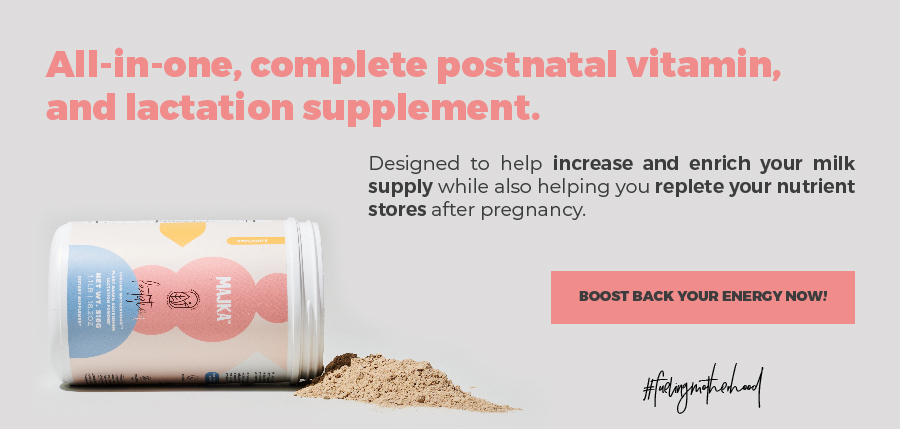
Giving birth is a very rewarding but also challenging experience that doesn’t end after delivery, as then comes the postpartum period in which your body is recovering from the many changes that it went to and while this is happening, you are getting to know your baby and also learning to take care of him/her.
In the following, we will tell you about postpartum: what it is, how long does it last, the changes that you may experience and how to take care of yourself during this period.
What is postpartum?
The first six weeks after you have a baby are called postpartum, this is a period in which your body is recovering from childbirth and undergoing through significant physical and emotional adjustments as well as your baby.
How long does postpartum last?
The postpartum period is usually related to the first six weeks after delivery, as we mentioned, but it’s important to note that every woman is unique and that these experiences can extend beyond these initial weeks, and different aspects of recovery and adjustment continue for several months.
What changes will I experience during postpartum?
During the postpartum period your body will go through various changes as it is returning to the state that it was before your pregnancy; your uterus contracts to its normal size, you will also experience postpartum bleeding (called lochia) and if you had a C-section, your incisions will be healing during this time.
After delivery, your hormone levels (including estrogen and progesterone), will drop significantly which can make you have mood swings, emotional changes, and even postpartum depression.
If you breastfeed, you will be learning how to do so during the postpartum period; adjusting to the process and addressing the challenges that may come with it.
Sleep deprivation is a common challenge during the postpartum period since your baby may require frequent feeding and care, often leading to disrupted sleep for you and your partner.
This period is also crucial for bonding with your baby; you can do so by making skin-to-skin contact, breastfeeding, cuddling and spending quality family time together.
Keep in mind that is normal if the postpartum period comes with intense emotions; many new parents experience a mix of joy, anxiety, fatigue, and sometimes the “baby blues” or depression; as postpartum involves a whole lot of changes including not only physical but it also can impact your family routine, your sleep habits, your time off, the errands you use to take care of and your social life, among others; all of it can be rewarding but also challenging.
Proper nutrition and adequate hydration is essential at this time, especially if you are breastfeeding. Do not miss your follow-up appointment with your doctor to monitor your recovery and to get all the support that you need while doing so.
When is my period coming back?
This isn’t an easy question to answer since each person is different:
- If you are exclusively breastfeeding, your period may not come back until you start giving your baby another type of feeding such as formula or solids, since the hormones that help you make your breast milk may stop the hormones that control your period.
- In a different case, if you bottle feed whether is combine with breastfeeding or not, your period could start at 5 to 6 weeks after you had your baby.
- Even prior to introducing formula and solids, if a baby is having long sleep stretches, menstruation can return.
Its normal if you find your periods different from what you used to experience before pregnancy, such as them being irregular, heavy or acommpained with cramps. Always keep your healthcare provider close regarding any concerns that you have.
What is the lactation amenorrhea method (LAM)?
Lactation amenorrhea method (LAM) is a way for breastfeeding to temporarily help prevent pregnancy. It must be used correctly to work. Lactation means your body is making breastmilk and amenorrhea means you aren’t having a monthly period. Breastfeeding hormones may stop your body from releasing eggs. You can’t get pregnant if you don’t release an egg.
Remember these 3 rules that always apply to lactation ammenorhea:
- The infant is less than six months old.
- The menstrual cycle is absent.
- The baby is exclusively breastfeeding.
Postpartum care
During your postpartum period you need medical, emotional and practical support, which is called postpartum care.
This care is essential for your physical recovery, emotional well-being, and for your adjustment to your new role as a parent. It typically involves medical checkups, emotional support, and guidance on self-care:
- Physical recovery: a doctor will monitor your healing regarding any perineal tears, epsiotomies or cesarian incisions as well as checking your uterus size and position.
- Breastfeeding support: postpartum care includes guidance on proper breastfeeding techniques, addressing any breastfeeding challenges that you may have, and monitoring your baby’s growth and feeding patterns.
- Birth control: your healthcare provider should discuss and provide information about birth control options to help your prevent an unplanned pregnancy during this period.
- Nutrition and hydration: they are important for your recovery, especially if you are breastfeeding.
- Sleep and rest: postpartum care involves guidance and strategies for managing sleep deprivation and ensuring you an adequate rest.
- Pelvic floor health: pelvic floor exercises and techniques will be provided to strengthen pelvic muscles and prevent issues like urinary incontinence.
- Remember, a doctor can help refer you to a Pelvic floor physical Therapist.
Keep in mind that regular postpartum checkups with a healthcare provider are crucial to ensure that your body is healing properly after childbirth. These checkups usually occur within the first few weeks after delivery and may continue for several months.
Emotional well-being is a critical aspect of postpartum care as well. Keep your family close and ask for any professional help if needed.
In Breastfeeding 101 we hope this information has help you to learn more about the postpartum period and what it involves.
We are always glad to have you here and invite you to follow all of our content regarding health topics.
If you want to learn more about what to expect during your postpartum period, here are some of the sources that made this article possible:
- Caring for Your Health After Delivery I Cleveland Clinic
- Episiotomy: When it’s needed, when it’s not I Mayo Clinic
- Estrogen I Cleveland Clinic
- Lochia I Cleveland Clinic
- Optimizing Postpartum Care I ACOG
- Postpartum Care of the New Mother I National Library of Medicine
- Postpartum care: What to expect after a vaginal birth I Mayo Clinic
- Progesterone I Clevelend Clinic
- Skin-to-skin contact I UNICEF
- What To Expect While Healing After Giving Birth I Cleveland Clinic
- When will my periods start again after pregnancy? I NHS
- Lactation amenorrhea method (LAM)
- Benefits of pelvic floor physical therapy
Annie Rueb





